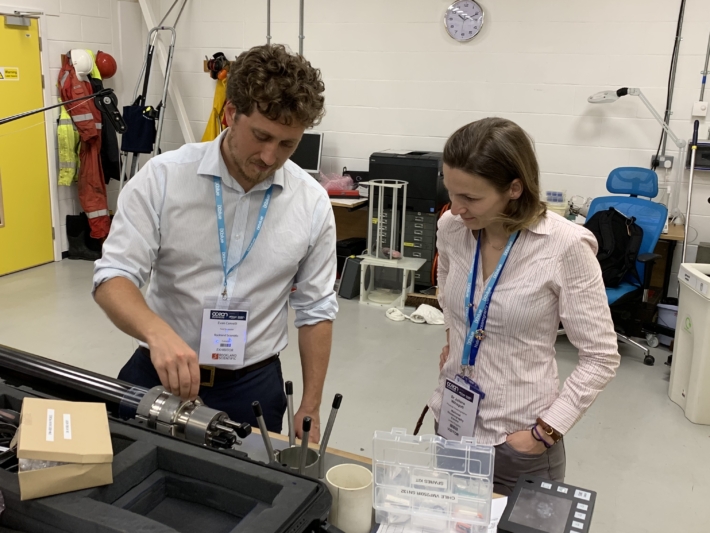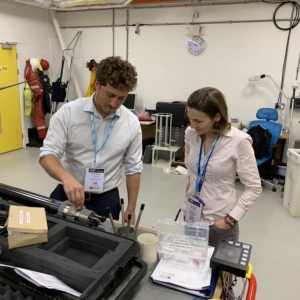Ocean Business 2019 provides timely training opportunity for Rockland Scientific
SOUTHAMPTON, UK, April 16, 2019 – Ocean Business 2019 provided Rockland Scientific with the opportunity to deliver a timely and pertinent training session to the National Oceanography Centre. Dr. Matthew Palmer, Chief Scientist at NOC Liverpool, leads a research expedition this June to Tanzania. Supported by NOC researcher Dr. Juliane Wihsgott, the team will carry out turbulence measurements involving a novel sampling approach with Rockland’s equipment.
The NOC scientists will perform a rapid samping underway transect from a small boat using a VMP-250 turbulence profiler with a rapid recovery system. These measurements will provide data for the study of nutrient fluxes that support artisanal fisheries in Zanzibar and are part of the SOLSTICE-WIO programme funded by the UK Global Challenges Research Fund.
The NOC has recently appointed Dr. Palmer as Chief Scientist to lead on its Science Community Engagement program, aimed at promoting and enhancing collaboration between NOC’s Marine Autonomous and Robotic Systems (MARS) engineering group and the marine science community.
Dr. Wihsgott receiving training from Rockland Field Technician Evan Cervelli at the NOC Marine Robotics Innovation Centre.
About Rockland Scientific: Rockland is dedicated to the measurement of turbulence in oceans, rivers, lakes and laboratories. Their measurement systems comprise of ship-board profilers as well as modular sensor payloads for deployment from gliders, floats, and moorings. They accurately detect turbulence levels, from the most energetic tidal channel down to the deep ocean.
—
About the National Oceanography Centre: NOC engages in research covering a range of oceanographic disciplines to further understand the complex nature of the ocean. One such research area is the study of marine physics and ocean climate, which focuses on the fundamental physical processes in the marine environment and their connection with, and influence on, the rest of the Earth system. This research spans microscopic to global scales, extends from the coast to the abyssal ocean, and includes boundary layer interactions with both the atmosphere and the seabed.




